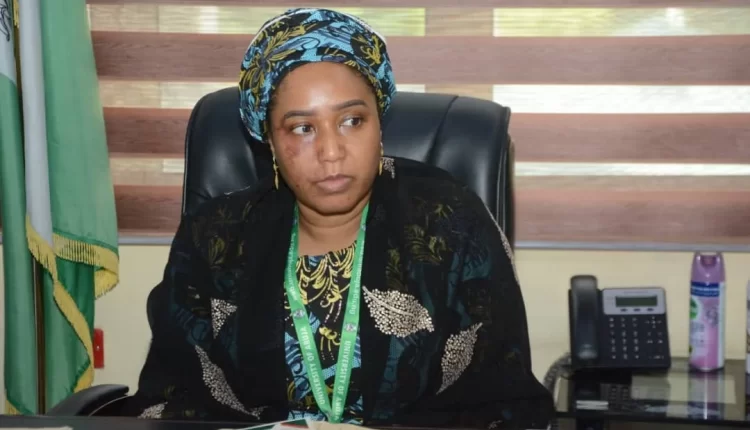Tinubu Shakes Up UniAbuja Leadership, Removes Aisha Maikudi as VC
***Dissolves Governing Council ***Dissolves Governing Council ***Dissolves Governing Council ***Dissolves Governing Council
In a sweeping move to reform Nigeria’s higher education sector, President Bola Tinubu has removed Aisha Maikudi as Vice-Chancellor of the University of Abuja (recently renamed Yakubu Gowon University) and dissolved the university’s governing council, citing controversies surrounding her appointment and governance issues within the institution.
The announcement was made via a statement from Bayo Onanuga, the President’s Special Adviser on Information and Strategy, who outlined significant leadership changes across several federal universities.
Maikudi’s removal comes just over a month after her official appointment as Vice-Chancellor on January 1, 2025, following a turbulent selection process.
Prior to her appointment, she served as the university’s acting VC from July 5, 2024. However, her rise to the top was marred by allegations of procedural irregularities and favoritism.
A group of professors had, in December 2024, submitted a formal protest to the Federal Ministry of Education, questioning the legitimacy of Maikudi’s appointment.
The petition accused the now-dissolved governing council, led by Retired Air Vice-Marshal Saddiq Ismaila Kaita, of manipulating the selection process to favor Maikudi.

According to the petitioners, over 87 applications were dismissed arbitrarily, and only three candidates were shortlisted to tilt the odds in Maikudi’s favor.
Critics also pointed to her limited professorial experience—just over two years—far below the ten-year minimum typically required for such a role. They further alleged that the council itself was improperly constituted, with key members handpicked by the immediate past VC.
UniAbuja isn’t the only institution affected by this leadership overhaul. The University of Agriculture in Makurdi and the University of Nigeria, Nsukka (UNN) also witnessed significant changes.
Lanre Tejuoso, formerly Pro-Chancellor of the University of Agriculture, Makurdi, has been appointed as the new Pro-Chancellor of Yakubu Gowon University (UniAbuja).
Joy Emordi, now Pro-Chancellor of Alvan Ikoku University of Education, will take over Tejuoso’s role in Makurdi.
At UNN, Polycarp Emeka Chigbu, whose tenure as Acting VC was set to expire on February 14, has been replaced by Oguejiofu Ujam for a six-month term. Ujam, like others appointed in this interim capacity, will not be eligible for the permanent VC position.
The role of Pro-Chancellor at UNN has also been reshuffled, with Ike Nwachukwu moving to the University of Uyo, and Olubunmi Kayode Ojo—formerly Pro-Chancellor of Federal University, Lokoja and Federal University, Oye-Ekiti—stepping in as the new Pro-Chancellor at UNN.
President Tinubu’s administration framed these sweeping changes as part of a broader agenda to revitalize Nigeria’s higher education system through dynamic leadership and accountability. “These appointments are aimed at revitalising the higher education system through dynamic leadership and accountability,” the statement from Onanuga read.
Observers suggest that this move signals a no-nonsense approach from the Tinubu administration, as it seeks to address long-standing issues of corruption, favoritism, and mismanagement in Nigeria’s universities. The dissolution of governing councils in contentious institutions underscores a renewed focus on merit-based appointments and adherence to due process.
However, critics argue that the centralization of power in determining university leadership might undermine institutional autonomy. Some fear that the top-down approach could stifle academic freedom and set a precedent for political interference in university affairs.
Following Maikudi’s removal, Lar Patricia Manko has been appointed as the acting VC of Yakubu Gowon University for a six-month term. Like her counterparts in other institutions, Manko will not be eligible to apply for the substantive VC position when it becomes available.
The future of the university—and others affected by this leadership shake-up—now rests on the government’s ability to appoint transparent, qualified candidates and restore confidence in Nigeria’s higher education system.
As the dust settles, all eyes will be on how these changes will impact the academic environment and whether they will indeed lead to the reforms President Tinubu envisions.

